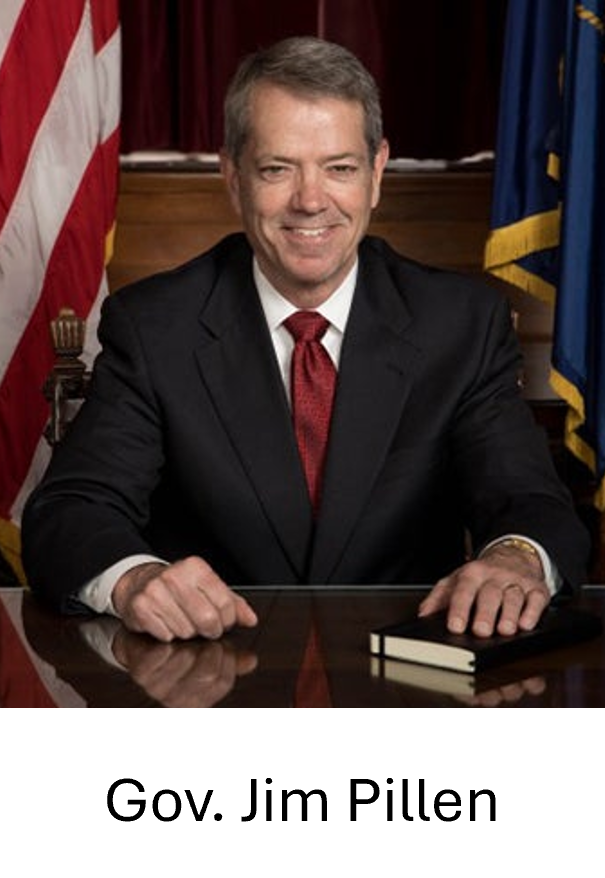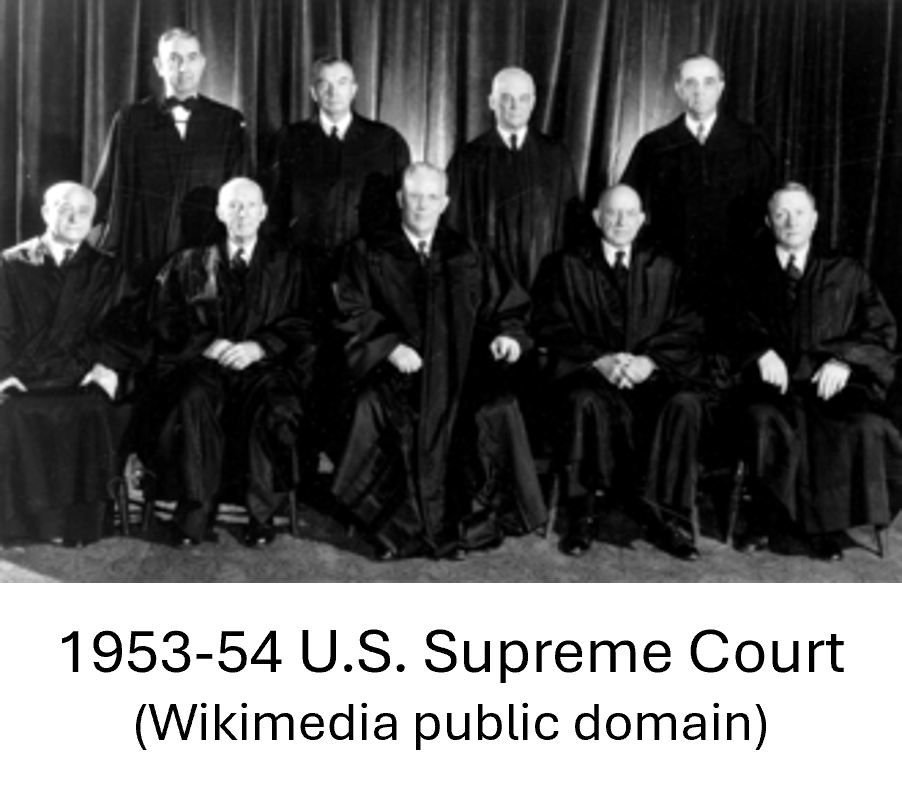Education Briefs
In September, Nebraska became one of the first states to opt into the Trump Administration’s federal school choice program that was included in the “tax and budget bill” Congress passed at the beginning of July. School choice supporters in the state include its Republican Governor, Jim Pillen, and U.S. Congressmen Adrian Smith and Mike Flood. The three announced Nebraska’s participation  in the voucher program at St. Theresa Catholic School in Lincoln. According to the Nebraska Examiner, Pillen said he was not merely opting his state into the program, but was “cannonballing it into the state of Nebraska.” The governor and other supporters of school choice failed to create the state’s own voucher program in 2024. While the teachers’ union, the Nebraska State Education Association (NSEA), called the federal program “a backdoor voucher scheme that diverts public resources into private systems without accountability or limits,” supporters say the opposite is true. Pillen pushed back, telling the Nebraska Examiner that “ballot initiatives in the state are flawed because ‘anybody that writes a big check can pay signature gatherers to get a [measure] on [the ballot]’” and that Nebraskans “totally agree” on school choice. “LB 753 and LB 1402 were signed into law in 2023 and 2024 and created similar tax credit programs at the state level for everyday Nebraskans .... The teachers union stole these opportunities for students in poverty....” Pillen pledged he will pursue additional school choice legislation if reelected “so Nebraska can be ‘competitive’ with other states” in the school choice arena.
in the voucher program at St. Theresa Catholic School in Lincoln. According to the Nebraska Examiner, Pillen said he was not merely opting his state into the program, but was “cannonballing it into the state of Nebraska.” The governor and other supporters of school choice failed to create the state’s own voucher program in 2024. While the teachers’ union, the Nebraska State Education Association (NSEA), called the federal program “a backdoor voucher scheme that diverts public resources into private systems without accountability or limits,” supporters say the opposite is true. Pillen pushed back, telling the Nebraska Examiner that “ballot initiatives in the state are flawed because ‘anybody that writes a big check can pay signature gatherers to get a [measure] on [the ballot]’” and that Nebraskans “totally agree” on school choice. “LB 753 and LB 1402 were signed into law in 2023 and 2024 and created similar tax credit programs at the state level for everyday Nebraskans .... The teachers union stole these opportunities for students in poverty....” Pillen pledged he will pursue additional school choice legislation if reelected “so Nebraska can be ‘competitive’ with other states” in the school choice arena.
Some New York school districts are spending up to $100,000 per student per year, according to a report by The Center Square. Specifically, the investigation showed “a half-dozen school districts” in the state spending more than $70,000 per student, with two districts spending “almost or more than $100,000.” The highest spending districts, notes the  report, are comparable in cost “not to their public counterparts but rather the nation’s most elite boarding schools and expensive private colleges such as the Woodside Priory, a private school run by Benedictine monks, and Pepperdine University, a private Christian College,” both of which are in California. The Center Square quoted Zilvinas Silenas, president of the nonpartisan watchdog group, The Empire Center, as saying these per-student spending amounts are “among the highest in the world.” An immigrant from Lithuania, Silenas said “taxpayers should cast a skeptical eye at school district spending. ‘New York State has spent increasing amounts of money on the public schools since 1969, and what results have we gotten?’” He added that The Empire Center is planning to release “a report on out-of-control public-school spending in the near future.” The Center Square acknowledges that its study comes “at a time when the topics of affordability and government spending have been obsessive issues in New York City’s mayoral race.” Democrat Zohran Mamdani “has proposed universal childcare, government-run grocery stores, and fare-free city buses. His plan would cost $7 billion, with $6 billion of that from free childcare for children five and younger.” The Center Square further points out that in high-spending districts, teachers’ salaries are also correspondingly high, although the superintendent of at least one of those districts disputed that the two were related.
report, are comparable in cost “not to their public counterparts but rather the nation’s most elite boarding schools and expensive private colleges such as the Woodside Priory, a private school run by Benedictine monks, and Pepperdine University, a private Christian College,” both of which are in California. The Center Square quoted Zilvinas Silenas, president of the nonpartisan watchdog group, The Empire Center, as saying these per-student spending amounts are “among the highest in the world.” An immigrant from Lithuania, Silenas said “taxpayers should cast a skeptical eye at school district spending. ‘New York State has spent increasing amounts of money on the public schools since 1969, and what results have we gotten?’” He added that The Empire Center is planning to release “a report on out-of-control public-school spending in the near future.” The Center Square acknowledges that its study comes “at a time when the topics of affordability and government spending have been obsessive issues in New York City’s mayoral race.” Democrat Zohran Mamdani “has proposed universal childcare, government-run grocery stores, and fare-free city buses. His plan would cost $7 billion, with $6 billion of that from free childcare for children five and younger.” The Center Square further points out that in high-spending districts, teachers’ salaries are also correspondingly high, although the superintendent of at least one of those districts disputed that the two were related.
On October 17, the group Defending Education filed a civil rights complaint against the Minneapolis Public Schools (MPS) for offering two “Black Culture” courses available only to Black male students. The complaint asserts that these exclusions “leave some students with  fewer class options available in order to graduate.” The two courses, “HS BLACK Culture — Building Lives Acquiring Cultural Knowledge,” and “HS BLACK Culture — Building Lives Acquiring Cultural Knowledge (Queens)” are offered at the district’s South High School. An article on Townhall.com says Defending Education’s 80-page complaint charges “that MPS is violating Title VI of the Civil Rights Act, which clearly states that ‘no person in the United States shall, on the ground of race, color, or national origin, be excluded from participation in, be denied the benefits of, or be subjected to discrimination under any program or activity receiving federal financial assistance.’” The group further found that “MPS actively discriminates against its students based on race.” (See also ‘Ethnic Studies’ Takes Another Radical Turn in Minnesota.) Several MPS high schools prohibit white and Asian students from enrolling in certain courses on black culture. The courses count toward the electives requirement, meaning that “white and Asian students must choose from a narrower list of class options in order to graduate.” Defending Education charges that these exclusions violate the 14th Amendment to the U.S. Constitution, as well as “a 1954 Supreme Court ruling” that held racial discrimination and segregation of students to be unconstitutional. This includes the “creation of or failure to address a racially hostile environment,” which the MPS is fostering with its “ethnic studies” curricula.
fewer class options available in order to graduate.” The two courses, “HS BLACK Culture — Building Lives Acquiring Cultural Knowledge,” and “HS BLACK Culture — Building Lives Acquiring Cultural Knowledge (Queens)” are offered at the district’s South High School. An article on Townhall.com says Defending Education’s 80-page complaint charges “that MPS is violating Title VI of the Civil Rights Act, which clearly states that ‘no person in the United States shall, on the ground of race, color, or national origin, be excluded from participation in, be denied the benefits of, or be subjected to discrimination under any program or activity receiving federal financial assistance.’” The group further found that “MPS actively discriminates against its students based on race.” (See also ‘Ethnic Studies’ Takes Another Radical Turn in Minnesota.) Several MPS high schools prohibit white and Asian students from enrolling in certain courses on black culture. The courses count toward the electives requirement, meaning that “white and Asian students must choose from a narrower list of class options in order to graduate.” Defending Education charges that these exclusions violate the 14th Amendment to the U.S. Constitution, as well as “a 1954 Supreme Court ruling” that held racial discrimination and segregation of students to be unconstitutional. This includes the “creation of or failure to address a racially hostile environment,” which the MPS is fostering with its “ethnic studies” curricula.
Want to be notified of new
Education Reporter content?
Your information will NOT be sold or shared and will ONLY be used to notify you of new content.
Click Here
Return to Home Page
